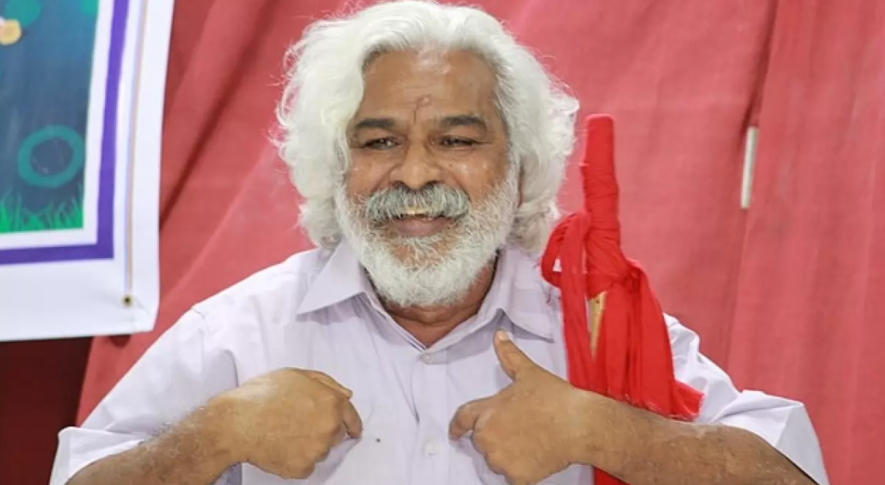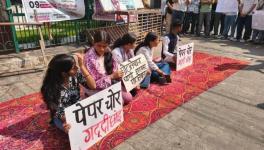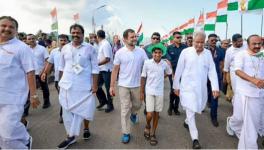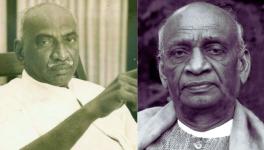Gaddar Film Awards: Symbolic Legacy or Commodification of Revolutionary Politics?

Image credit: Wikimedia Commons
On May 29, 2025, the Telangana government announced the inaugural Gaddar Telangana Film Awards, replacing the Nandi Awards, to recognise excellence in Telugu cinema. Named after the iconic revolutionary poet and balladeer, Gaddar, the awards are hosted by the Telangana Film Development Corporation (TFDC), with awardees selected by a jury chaired by actors Murali Mohan and Jaya Sudha.
The awards are split into two segments: one for films released in 2024, and another retrospectively covering the period from June 2014 to December 2023. A total of 10 decade-wise Best Film awards and six Special Awards were announced, along with a full slate of 2024 category-wise recognitions such as Best Actor, Best Film, Best Story, and Jury Awards. The awards were officially presented on June 14, 2025 in Hyderabad.
While it seems to be a positive initiative for the film industry, the naming of the awards after Gaddar -- a lifelong critic of state power and a revolutionary cultural figure rooted in anti-caste, anti-class, anti-capitalist, anti-feudal, and anti-imperialist struggles -- has raised doubts about the state's true intentions.
Known for his strong ideological stance, Gaddar consistently distanced himself from State-sponsored honours. Ironically, the same Nandi Awards he once rejected, have now been renamed after him.
Gaddar’s rejection came from a deep-rooted belief in aligning with people’s struggles, not with systems that suppress them. As he recounted in an interview with Journalist Diary, explaining why he refused the Nandi Award for his song “Nee Paadam Meedha Puttu Machanai Chellemma” from the film Adavilo Anna, he pointed out the contradiction: “The same state that gives me awards also imprisons the people who sing my songs.”
Again, during the award-giving event on June 14, Gaddar’s photo was missing from the official government invitation card. This omission has, therefore, raised pressing questions about the sincerity of the tribute for both the current Congress-led government and the two-term-ruled Bharat Rashtra Samithi or BRS, whether the state is attempting to symbolically appropriate a revolutionary who persistently resisted its validation.
Does Telangana Have a Substantial Cinema Community?
The demand for a separate state was rooted not only in the unequal sharing of resources but also in deep differences in culture, language, and art -- elements central to Telangana’s unique identity, which figures like Gaddar often highlighted publicly. However, since the formation of the state in 2014, the number of movies made and the presence of actors from Telangana have not significantly differed from the times of the united Andhra Pradesh.
The democratisation of the Telugu film industry has largely remained elusive over the past 11 years, despite lofty promises by the previous administration under BRS leader K Chandrashekar Rao (KCR) to build a world-class cinema landscape in Telangana.
Similar to KCR, Chief Minister Revanth Reddy of Congress, has expressed the Telangana government’s commitment to making Hyderabad a global destination for the international film community.
While both administrations have made high-profile promises to elevate the Telugu film industry and attract Hollywood and Bollywood productions, there has been little clarity on what these ambitious visions mean for aspiring filmmakers, artists, and technicians from Telangana, particularly those from marginalised caste-class backgrounds.
Moreover, the Telugu film industry in Hyderabad has remained under the control of dominant communities from Andhra Pradesh, such as the Kamma and Kapu castes, with some influence from the Reddy caste. Powerful families of the Telugu film industry, such as those of Rama Naidu, NT Rama Rao, Akkineni Nageswara Rao, and Chiranjeevi, continue to control production houses, cinema distribution networks, and talent pipelines.
Despite the economic benefits the film industry brings to Hyderabad, the anticipated democratisation of opportunities for Telangana-based artists and filmmakers has largely failed to materialise. While a few films such as Mallesham, Virataparvam and Balagam, have shown Telangana’s unique socio-cultural narratives, these are often co-opted more for marketing than for genuinely celebrating a culture or way of life.
The Telangana dialect is frequently used for comic relief or caricature, rather than with the respect and authenticity it deserves. The industry remains shaped by entrenched caste hierarchies and capitalist power structures.
In an interview with Journalist Diary, Gaddar clarified that he was not opposed to cinema as an art form, but he was critical of the industry's lack of ideological commitment. He explained that filmmakers were willing to produce films with revolutionary or Naxalite themes only when it served their commercial interests. However, if such content doesn’t promise profits, they quickly abandon it. “The ultimate investment of the capitalist,” he said, “is to generate profit without commitment.”
Why This Award Dishonours Rather Than Honouring Gaddar?
Gaddar remains one of the most iconic revolutionaries in Telangana’s socio-cultural history -- from his early days as a singer with the Jana Natya Mandali (JNM) in the 1970s People’s War, to his powerful use of poetry and performance to challenge caste, class, and state oppression. His art was never just art, it was resistance. The naming of a film award after Gaddar, a revolutionary artist who devoted his life to anti-capitalist struggles and socially conscious causes, therefore, appears deeply ironic.
As the Telugu film industry continues to expand under majoritarian and market-driven forces, it has failed to meaningfully democratise access or representation for marginalised communities. While Gaddar’s work provoked critical thinking and resistance to power, today’s industry increasingly aligns with hegemonic values, often neglecting issues like caste oppression and enabling the subtle, deliberate glorification of caste dominance, Hindutva, and Islamophobia. This marks a troubling departure from the values Gaddar championed.
The recent decision to award films like RRR, which misrepresents and appropriates adivasi identity, and Razakar, which promotes hate and Islamophobic sentiments, by showcasing a wrong interpretation of actual history with a malicious intention to create communal rift in Telangana, is deeply concerning. For instance, historical accounts confirm that while Qasim Rizvi led the Razakar movement, its Vice President Visunuru Ramachandra Reddy, a dominant Hindu zamindar and his family members, were also responsible for heinous acts. But the story narration in the movie has conveniently erased the complicity of such upper-caste Hindu landlords in Razakar atrocities. Such omissions are not accidental but serve to construct a communal narrative.
These films, rather than embodying the progressive ideals Gaddar stood for, reinforce Hindu majoritarian and divisive ideologies. Such contradictions dishonour Gaddar’s legacy, a man who dedicated his life to awakening the masses and challenging systemic injustice. Awards that celebrate regressive and communal narratives risk undermining the very principles he fought for.
As the Gaddar Telangana Film Awards largely reward films endorsed by entrenched industry gatekeepers, it becomes essential to ask, what does it mean for a state to institutionalise the legacy of a cultural activist who spent his life resisting the very structures of State power and dominant cultural production? Is this genuine recognition, or merely symbolic appropriation of his radical spirit?
Adding to this, the Congress government in Telangana has recommended Gaddar’s name for the Padma Awards, another gesture that, though framed as honorific, risks diluting his revolutionary legacy. Without a firm commitment to the ideals he stood for -- people-centric governance, radical social justice, and the dismantling of structural inequality -- such recognition rings hollow.
Using Gaddar’s name for political or commercial gain, without addressing the very injustices he fought against, amounts not to honour but to appropriation. To invoke his name without embodying his values is, ultimately, an act of disrespect.
As someone known in virtually every household in Telangana, Andhra Pradesh, and beyond, Gaddar’s organic political presence may appear electorally appealing to the Congress. But if the party truly envisions itself as a progressive alternative, its cultural and political platforms must reflect the transformative values Gaddar lived by, not merely use his name for moral capital.
A meaningful tribute would involve institutional support, such as establishing cultural centres, creating a Department of Folk Studies at prominent higher education institutions like Osmania University, or even founding a dedicated Folk University in Gaddar’s name to research, preserve, and enrich Telangana’s diverse folk traditions. It would also mean funding state-backed production houses and providing fellowships and grants for filmmakers from marginalised communities. Such initiatives would not only honour Gaddar’s legacy in name but also advance the very social justice he gave his life to.
Arunank Latha is a Hyderabad-based screenwriter, lawyer, and poet and author of the books, Kaasintha Prema Kaavaali and Khwaab. Ashok Danavath is a Senior Researcher with National Campaign on Dalit Human Rights (NCDHR). The views are personal.
Get the latest reports & analysis with people's perspective on Protests, movements & deep analytical videos, discussions of the current affairs in your Telegram app. Subscribe to NewsClick's Telegram channel & get Real-Time updates on stories, as they get published on our website.
























